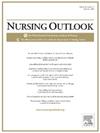Preparing the next generation of nurse leaders in education, science, and practice: Lessons from four Robert Wood Johnson Foundation programs
IF 4.1
2区 医学
Q1 NURSING
引用次数: 0
Abstract
Background
Recent articles have described the challenges in developing nurse leaders to advance nursing science, improve health, healthcare, and health equity, and build the next generation of nurses. Over the past 25 years, the Robert Wood Johnson Foundation (RWJF) has implemented many programs to develop nurse leaders to address these challenges.
Purpose
This article shares lessons learned from four RWJF programs and how the authors recommend those lessons can be applied today.
Methods
The Robert Wood Johnson Foundation (RWJF) has supported nursing leadership development for over fifty years. Discussion of four RWJF nursing programs including the Executive Nurse Fellows (1998–2017); the New Jersey Nursing Initiative (2009–2016); the Nurse Faculty Scholars (2007–2017) and the Future of Nursing Scholars (2013–2023) is used to highlight strategies and lessons learned.
Findings
Key lessons for developing the next generation of nurse leaders and strengthening the nurse leader pipeline include the importance of continuing leadership development over the course of one’s career; accelerating the nursing PhD to faculty pipeline; strong intentional mentoring; and building supportive communities to ensure long term impact.
Discussion
While these program examples had purposeful philanthropic funding, the lessons can also be implemented by building partnerships with federal agencies, philanthropy, and universities.
在教育、科学和实践方面培养下一代护士领袖:罗伯特-伍德-约翰逊基金会四项计划的经验教训。
背景:最近有文章描述了在培养护士领导者以推动护理科学发展、改善健康、医疗保健和健康公平以及培养下一代护士方面所面临的挑战。在过去的 25 年中,罗伯特-伍德-约翰逊基金会(RWJF)实施了许多培养护士领导者的项目,以应对这些挑战。目的:本文分享了罗伯特-伍德-约翰逊基金会四个项目的经验教训,以及作者建议如何将这些经验教训应用到今天的工作中:罗伯特伍德约翰逊基金会(RWJF)支持护士领导力发展已有五十多年的历史。通过讨论罗伯特伍德约翰逊基金会的四项护理计划,包括执行护士研究员计划(1998-2017 年)、新泽西护理计划(2009-2016 年)、护士教员学者计划(2007-2017 年)和未来护理学者计划(2013-2023 年),重点介绍了相关策略和经验教训:研究结果:培养下一代护士领导者和加强护士领导者管道的主要经验包括:在个人职业生涯中持续发展领导力的重要性;加速护理博士到教师的管道;强有力的有意指导;以及建立支持性社区以确保长期影响:讨论:虽然这些计划实例都得到了有目的的慈善资助,但也可以通过与联邦机构、慈善机构和大学建立伙伴关系来吸取经验教训。
本文章由计算机程序翻译,如有差异,请以英文原文为准。
求助全文
约1分钟内获得全文
求助全文
来源期刊

Nursing Outlook
医学-护理
CiteScore
6.20
自引率
7.00%
发文量
109
审稿时长
25 days
期刊介绍:
Nursing Outlook, a bimonthly journal, provides innovative ideas for nursing leaders through peer-reviewed articles and timely reports. Each issue examines current issues and trends in nursing practice, education, and research, offering progressive solutions to the challenges facing the profession. Nursing Outlook is the official journal of the American Academy of Nursing and the Council for the Advancement of Nursing Science and supports their mission to serve the public and the nursing profession by advancing health policy and practice through the generation, synthesis, and dissemination of nursing knowledge. The journal is included in MEDLINE, CINAHL and the Journal Citation Reports published by Clarivate Analytics.
 求助内容:
求助内容: 应助结果提醒方式:
应助结果提醒方式:


